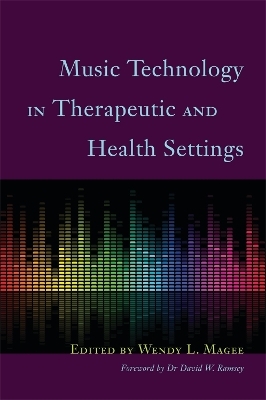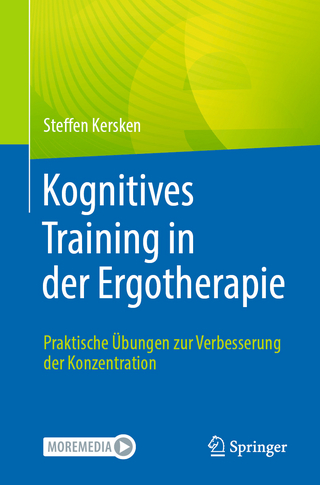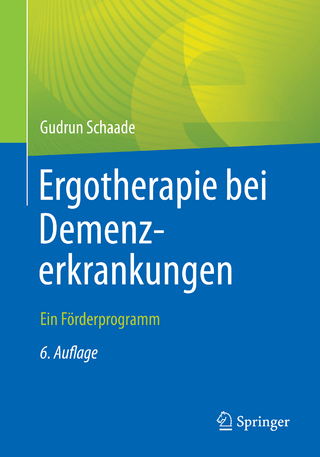
Music Technology in Therapeutic and Health Settings
Jessica Kingsley Publishers (Verlag)
978-1-84905-273-3 (ISBN)
There is a rapidly emerging and developing area of music therapy practice that uses electronic music technologies in a range of therapeutic and clinical settings to help clients with complex needs. This edited volume explains cutting edge technologies and how to apply these tools in practice.
With contributions from leading experts in the field, the book takes the reader through the equipment that is available including computer-based software; electronic devices which produce musical sounds with minimal movement or skill; assistive devices such as switches and sensors; and recording and listening equipment. Clinical case studies are then offered that show these technologies being used successfully with a broad range of child and adult populations, including those with visual impairments, autism spectrum disorders, medical needs, physical challenges, and mental health issues, and within a variety of settings, including a neonatal intensive care unit, schools, hospital environments, and palliative care settings. The final section looks toward the future and examines philosophical and theoretical perspectives on the use of technology and its relationship to aesthetics, gender and identity.
This book will be a key resource for all music therapists, special needs educators, and professionals from the field of assistive technology, as well as allied health professionals such as occupational therapists and speech and language therapists.
Felicity Baker, PhD is Associate Professor and Australia Research Council Future Fellow based at The School of Music, The University of Queensland. She is co-editor of Song Writing Methods, Techniques and Clinical Applications for Music Therapy Clinicians, Educators and Students and co-author of Music Therapy in Neurorehabilitation: A Clinician's Manual. She reviews for a number of music therapy and interdisciplinary journals and is editor-in-chief for The Australian Journal of Music Therapy. Felicity has a strong interest in recovering the expressive potential of the voice following traumatic brain injury. Susan Hadley is an associate professor in music therapy at Slippery Rock University, Pennsylvania. She edited Psychodynamic Music Therapy: Case Studies and Feminist Voices in Music Therapy. Susan's other interests include narrative therapy, feminism, and psychodynamic music therapy.
Acknowledgements. Foreword by Dr David W. Ramsey, President and Co-Founder, Interactive Musically Assisted Rehabilitation Systems (i-Mars, LLC), USA. Preface. Section 1: Background and Overview to Technology and its Use in Therapeutic Contexts. 1. Setting the scene: An Overview of the Use of Music Technology in Practice. Susan Hadley, Slippery Rock University, Nicole Hahna, Slippery Rock University, Vern Miller, Pennsylvania Psychiatric Institute, and Michelle Bonaventura, Slippery Rock University. 2. Music Technology Used in Therapeutic and Health Settings: Definitions of Devices and Resources. Robert E. Krout, Southern Methodist University, Dallas, Texas and University of Queensland, Australia. 3. An Introduction to Using Assistive Devices in Music Therapy. Jane Bache, Compass Electronic Assistive Technology Service, Royal Hospital for Neuro-disability, Gary Derwent, Royal Hospital for Neuro-disability, and Wendy Magee, Temple University, Philadelphia. 4. Indications and Contra-indications for Using Music Technology with Clinical Populations: When to Use and When Not to Use. Wendy Magee. Section 2: Music Technology in Therapeutic Contexts with Children and Adolescents. 5. Music Technology in the Neonatal Intensive Care Unit. Andrea M. Cevasco, The University of Alabama, Tuscaloosa, AL. 6. Innovations in Medical Music Therapy: The Use of Electronic Music Technologies in a Pediatric Burn Hospital. Annette Whitehead-Pleaux, Shriners Hospitals for Children, Boston, and Lisa E. Spall, Roman Music Therapy Services, LLC. 7. Access to Music Making through Switch and Voice Output Technology for Young People with Multiple and Complex Needs in a School Setting. Julie Buras Zigo, Berklee College of Music, Boston, MA, and Franciscan Hospital for Children, Brighton, MA. 8. Using Music Technology with Children and Adolescents with Visual Impairments and Multiple Disabilities. Lisa Martino, Perkins School for the Blind, and Michael Bertolami, Perkins School for the Blind. 9. Engaging iPad Applications with Young People with Autistic Spectrum Disorders. Robert E. Krout. 10. Applications of Music Technology in a Children's Hospice Setting. Jackie Lindeck, Operational Manager for Creative Therapies at Coram, UK. Section 3: Music Technology in Therapeutic Contexts with Adults. 11. Using GaragebandTM Music Software with Adults with Acquired Brain Injury at Headway East London: Identity, Communication and Executive Function. Alex Street, Cambridgeshire Music Therapy and Bedfordshire Music Therapy Partnership. 12. Playing in the Band: The Story of the Headbangers. A Performance Ensemble for Young People and Young Adults Using Assistive Devices. Jon Adams, Massachusetts Hospital School and Software Developer, Switch In Time, and Marcia Lajoie, Brayton School at Massachusetts Hospital School. 13. The Birth of a Therapeutic Recording Studio: Addressing the Needs of the Hip-Hop Generation on an Adult Inpatient Psychiatric Unit. Nir Sadovnik, Woodhull Medical and Mental Health Center, Brooklyn, NY. 14. Creative Adaptations of Music Technology in Adult Cancer Care. Lorrie Kubicek, The HOPES Program, Massachusetts General Hospital Cancer Center. 15. GaragebandTM as a Digital Co-Facilitator: Creating and Capturing Moments with Adults and Elderly People with Chronic Health Conditions. Ariel Weissberger, Institute for Music and Neurologic Function. Section 4: Theory, Research and Practice: Future Directions for Music Technology in Therapeutic Contexts. 16. Therapeutic Songwriting with Clients in an e-Health Environment. Felicity A. Baker, School of Music, The University of Queensland, and Robert E. Krout. 17. Gender-technology Relations in the Training and Practice of Music Technology in Therapeutic Settings. Wendy Magee and Davis Wimberly, Berklee College of Music. 18. Music Technology and Identity in Therapeutic Contexts. Karen Burland, University of Leeds, and Wendy Magee. 19. Music Aesthetics, Music Technology, and Music Therapy. Joseph C. Nagler, Music Department, Queensborough Community College, City University of New York. 20. Models for Roles and Collaborations When Using Music Technology in Music Therapy. Wendy Magee. List of Contributors. Index.
| Erscheint lt. Verlag | 21.9.2013 |
|---|---|
| Co-Autor | Felicity Baker, Nir Sadovnik, Marcia Lajoie, Jon Adams |
| Zusatzinfo | 19 b&w photos/figures |
| Verlagsort | London |
| Sprache | englisch |
| Maße | 151 x 230 mm |
| Gewicht | 572 g |
| Themenwelt | Medizin / Pharmazie ► Physiotherapie / Ergotherapie ► Ergotherapie |
| ISBN-10 | 1-84905-273-5 / 1849052735 |
| ISBN-13 | 978-1-84905-273-3 / 9781849052733 |
| Zustand | Neuware |
| Informationen gemäß Produktsicherheitsverordnung (GPSR) | |
| Haben Sie eine Frage zum Produkt? |
aus dem Bereich


